Anji Pearl Tips
Anji Pearl Tips
Anji Pearl Tips (Anji Bai Cha) is a rare green tea prized for its exceptionally high l-theanine content, yielding a smooth, almost creamy infusion with a natural sweetness.
|
Region 💬The region where tea is grown influences its flavor, aroma, and quality. Different climates, altitudes, and soil types contribute to unique characteristics specific to each area.
|
Anji County, Zhejiang, China |
|---|---|
|
Harvest 💬The season when the tea is harvested affects its flavor profile. Early spring teas, known as first flush, are often lighter and more delicate, while later harvests can be bolder and more robust.
|
Early spring 2024 |
|
Cultivar 💬 Cultivar refers to the specific variety of tea plant used. Different cultivars have distinct flavor profiles, growth patterns, and adaptability to environmental conditions.
|
Camellia sinensis var. sinensis |
|
Pluck set 💬 The pluck set describes the combination of leaves and buds that are harvested. For example, 'one bud and two leaves' is a common standard that can impact the tea's flavor, texture, and quality."
|
1 bud with 2 leaves |
|
Caffeine 💬Caffeine levels vary between tea types and can be influenced by factors like leaf size, processing methods, and steeping time.
|
medium |
|
Roast 💬Roast level refers to how much heat has been applied to the leaves during processing. A higher roast imparts deeper, toasty notes, while lighter roasts preserve the tea’s natural floral or vegetal character.
|
N/A |
|
Oxidation 💬Oxidation is the process of exposing tea leaves to air, which changes their color and flavor. Higher oxidation levels result in darker, more robust teas, while lower levels maintain lighter, more delicate flavors.
|
0% |
|
Fermentation 💬Fermentation is a microbial process used in certain teas like Pu'er to develop complex flavors over time. Higher fermentation levels often produce richer, earthier notes and darker liquor.
|
N/A |
Grade info: We offer 3 different grades of tea: ZL Everyday (premium), ZL Select (ultra premium), and ZL Artisan (luxury).
Learn more about how we grade our teas.
Suggested water temperature
 |
75–85°C |
OR | Allow kettle to cool for 5 minutes before pouring |
Simple brewing method
 |
+ |  |
+ |  |
+ |  |
| 2g (1 tsp) |
tea infuser | 240ml (1 cup) |
4-5 mins |
2 oz | 56.7 g (28 cups)
4 oz | 113.4 g (56 cups)
8 oz | 226.8 g (112 cups)
1.41 oz | 40 g (20 cups)
Couldn't load pickup availability
Share
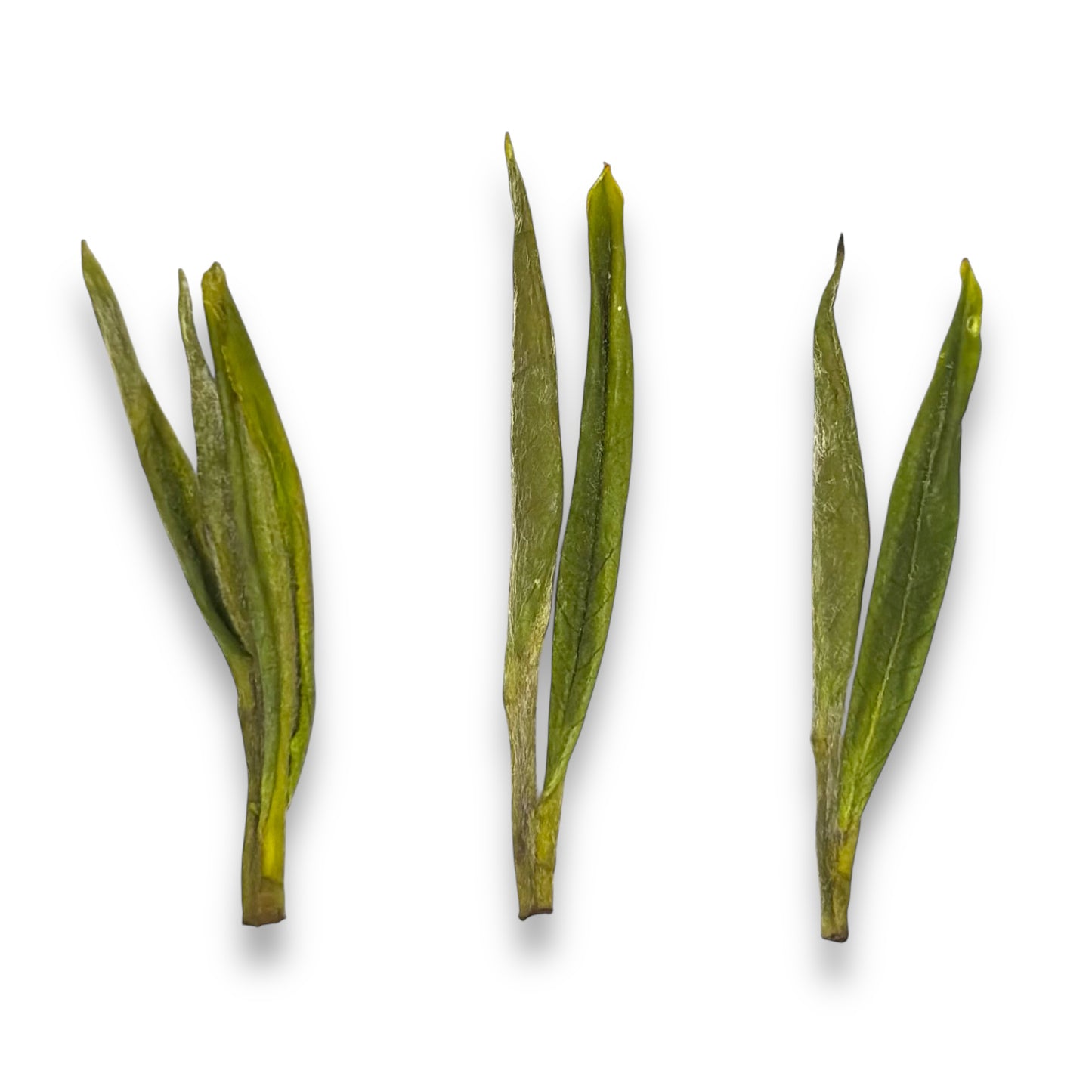
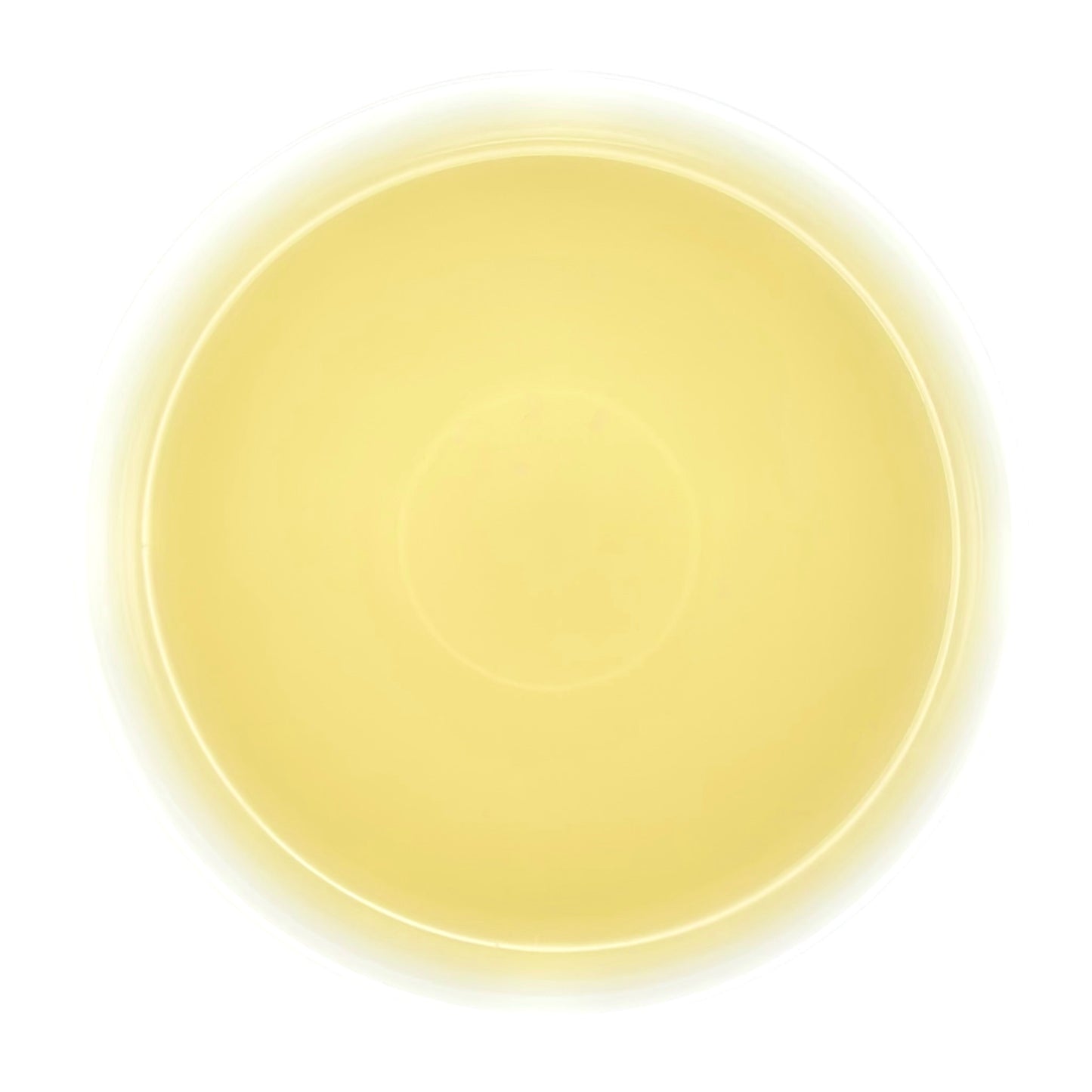
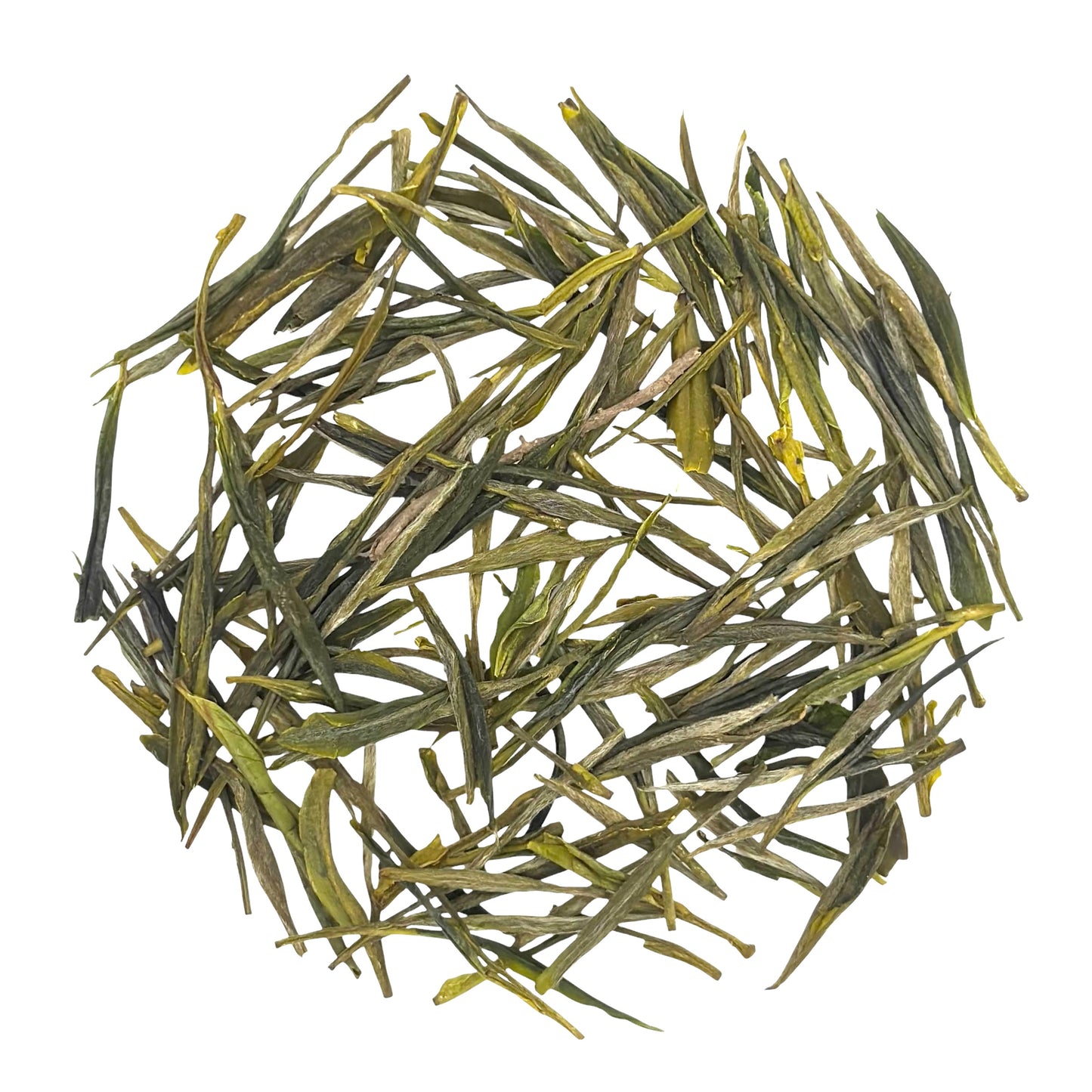
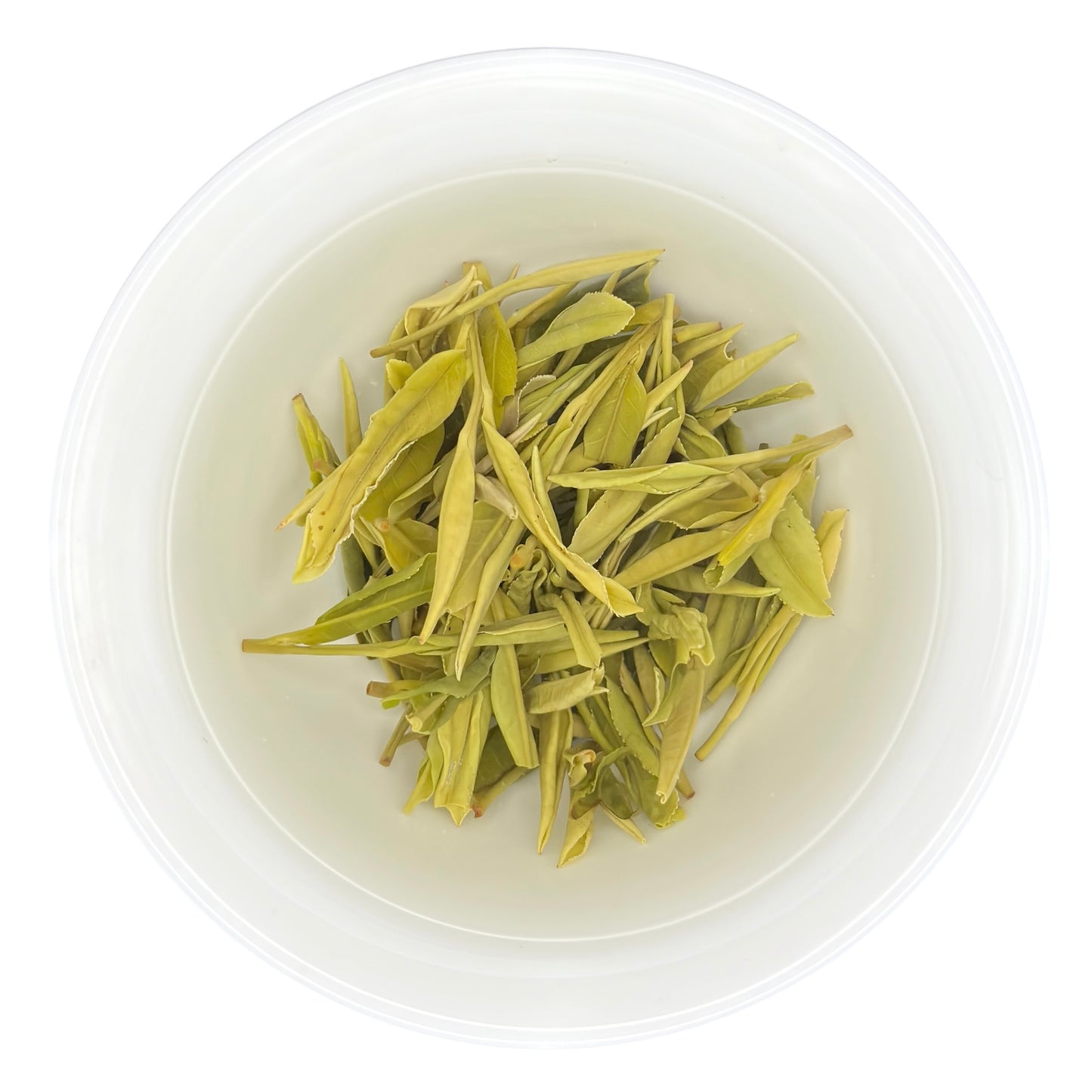
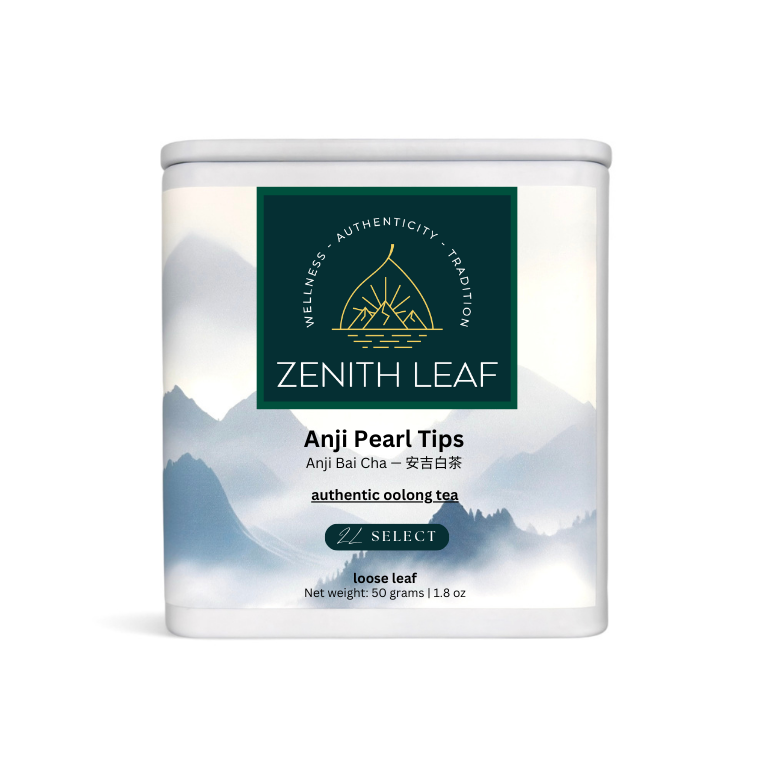
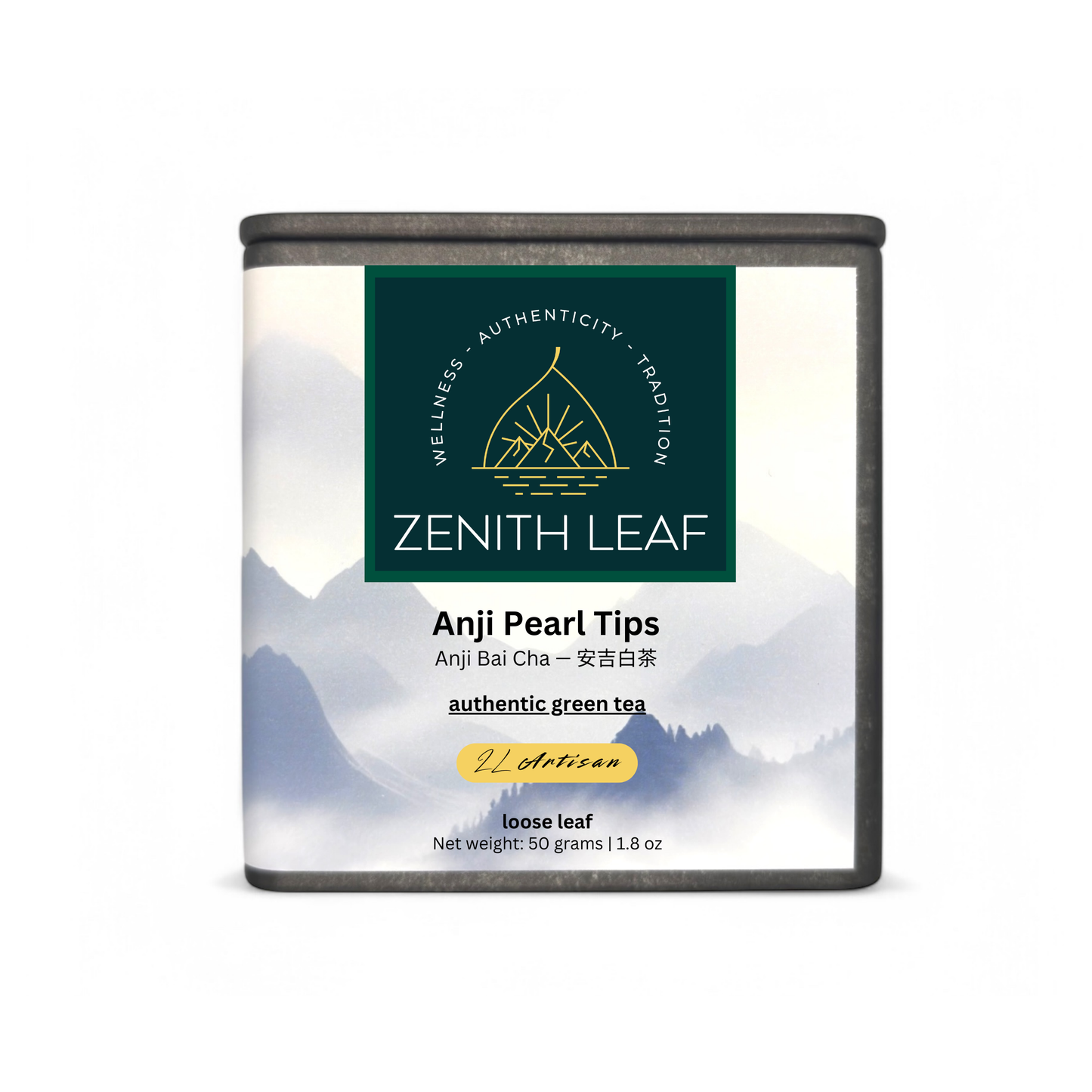
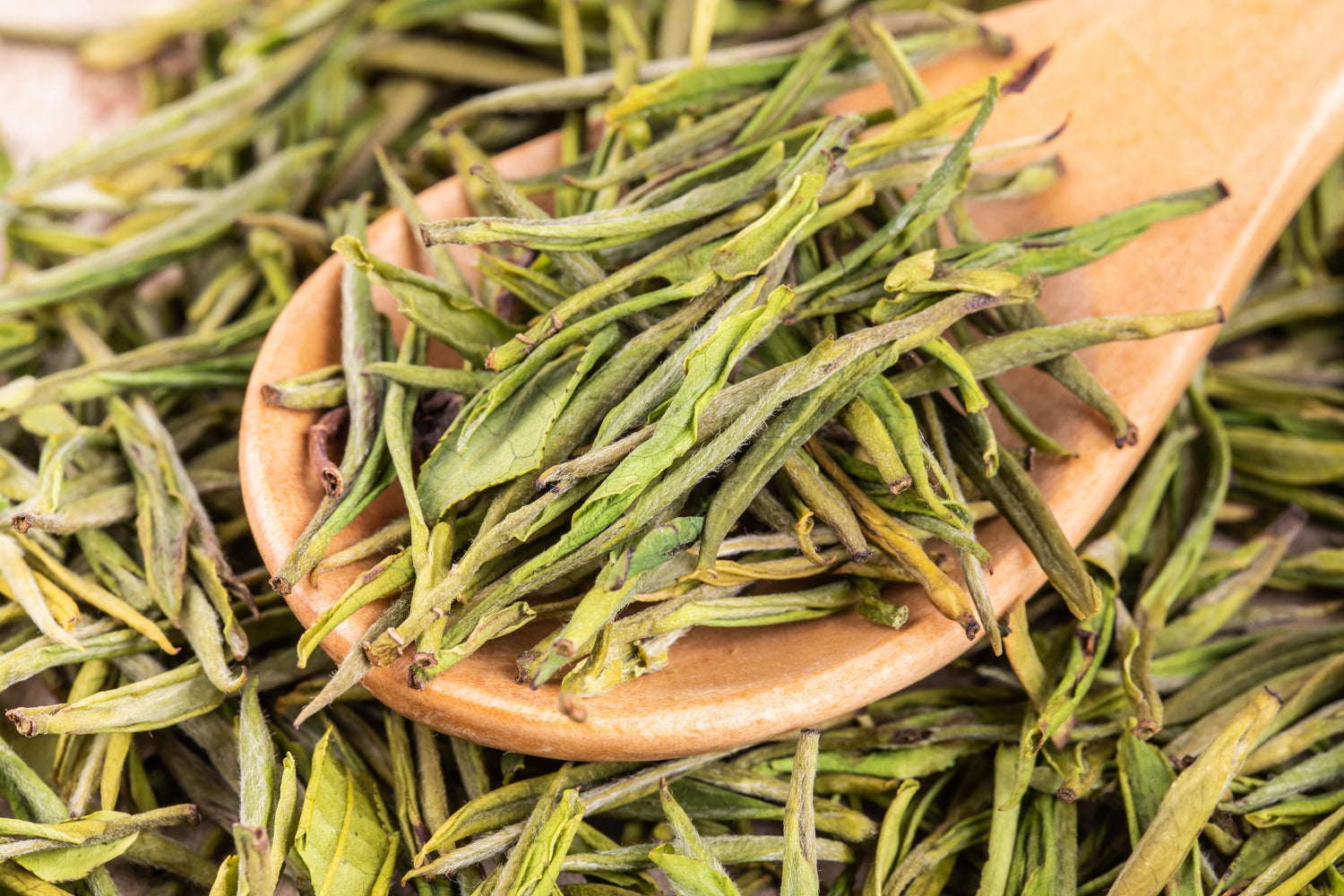
Taste & Aroma
Anji Pearl Tips (Anji Bai Cha—安吉白茶) captivates with its clean, refreshing character, where the gentle woodiness of white cedar mingles harmoniously with the soft floral allure of lilac. A delicate sweetness reminiscent of ripe pear rounds out the profile, creating a tea that feels both crisp and elegantly nuanced.
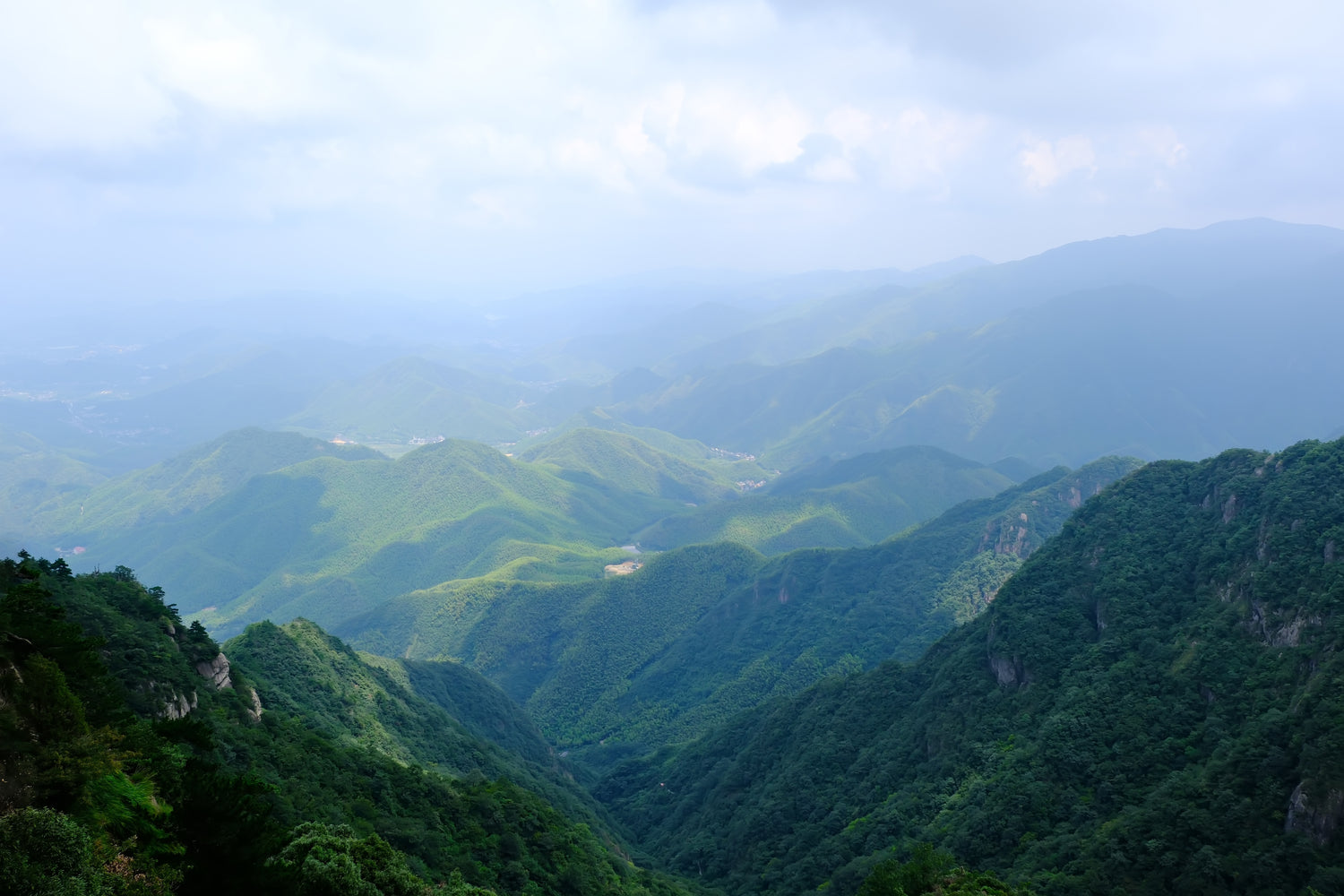
Terroir
Anji Pearl Tips are cultivated in the cool, mountainous region of Anji County, where a combination of limestone-rich soils and low average temperatures enhances its amino acid levels, resulting in its signature umami depth. The area's early spring frosts delay bud growth, contributing to the tea's characteristic pale leaves and vibrant, fresh flavor.
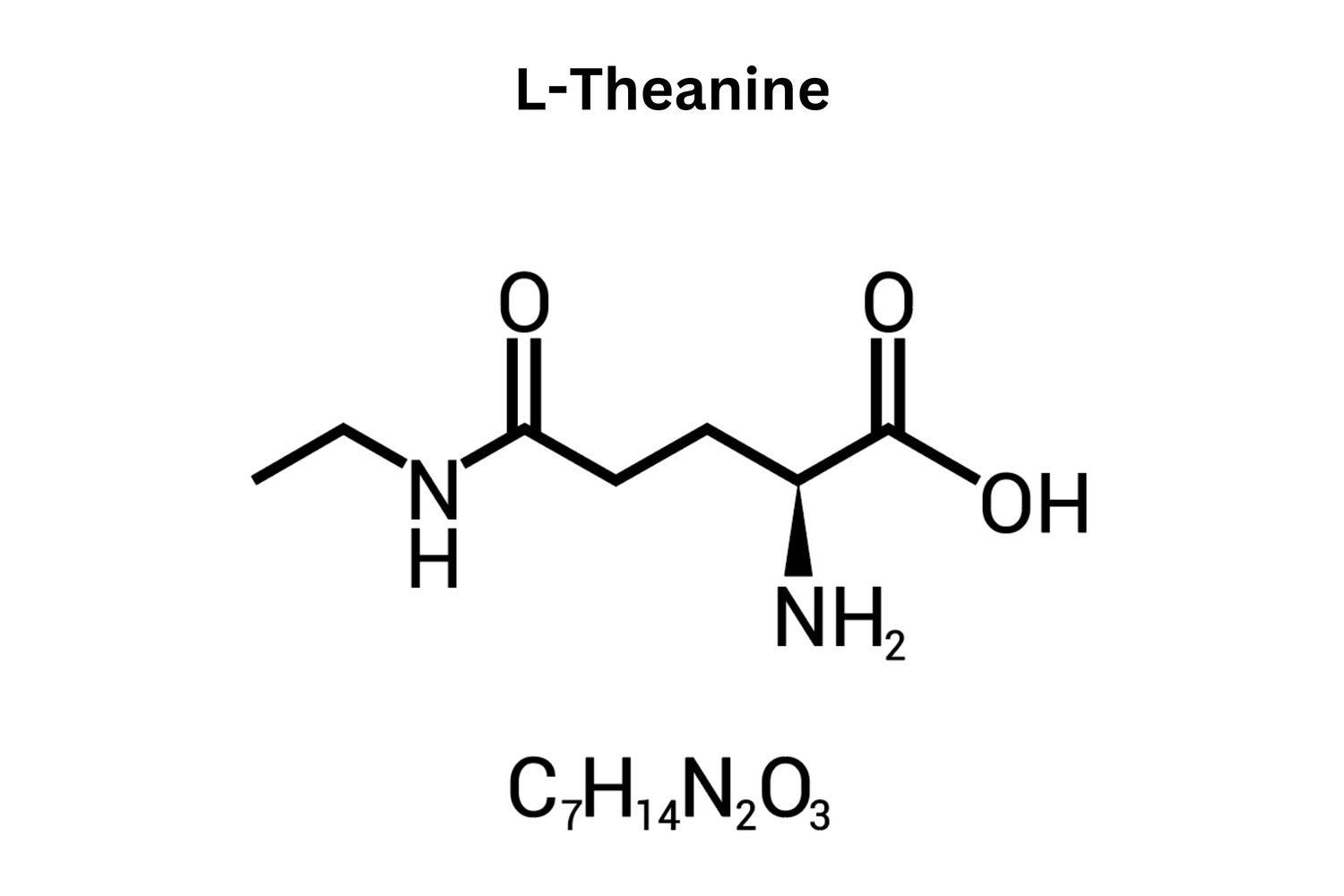
Health
Teas with high amino acid content and low chlorophyll, like Anji Pearl Tips, are known for their calming effects due to the abundance of L-theanine, which promotes relaxation and mental clarity. Additionally, the lower chlorophyll levels contribute to a smoother flavor profile, making it easier on the stomach while still delivering antioxidants that support overall health.
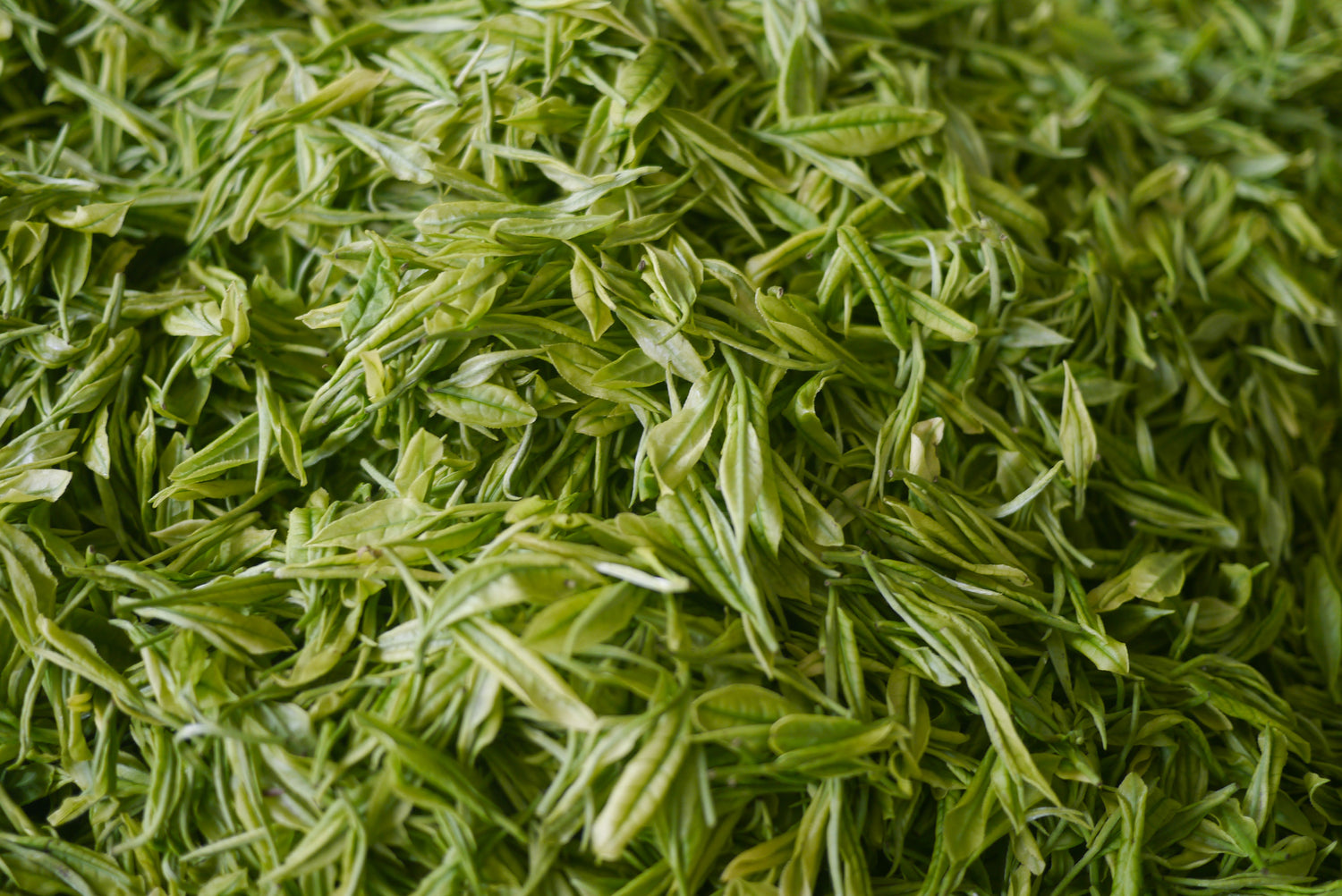
Production
Anji Pearl Tips are harvested during a brief window in early spring, with only the tender buds and first leaves picked before the tea plant’s chlorophyll production increases. Its pale, jade-like appearance is preserved through precise pan-firing and gentle rolling, techniques that highlight the tea’s unique composition.
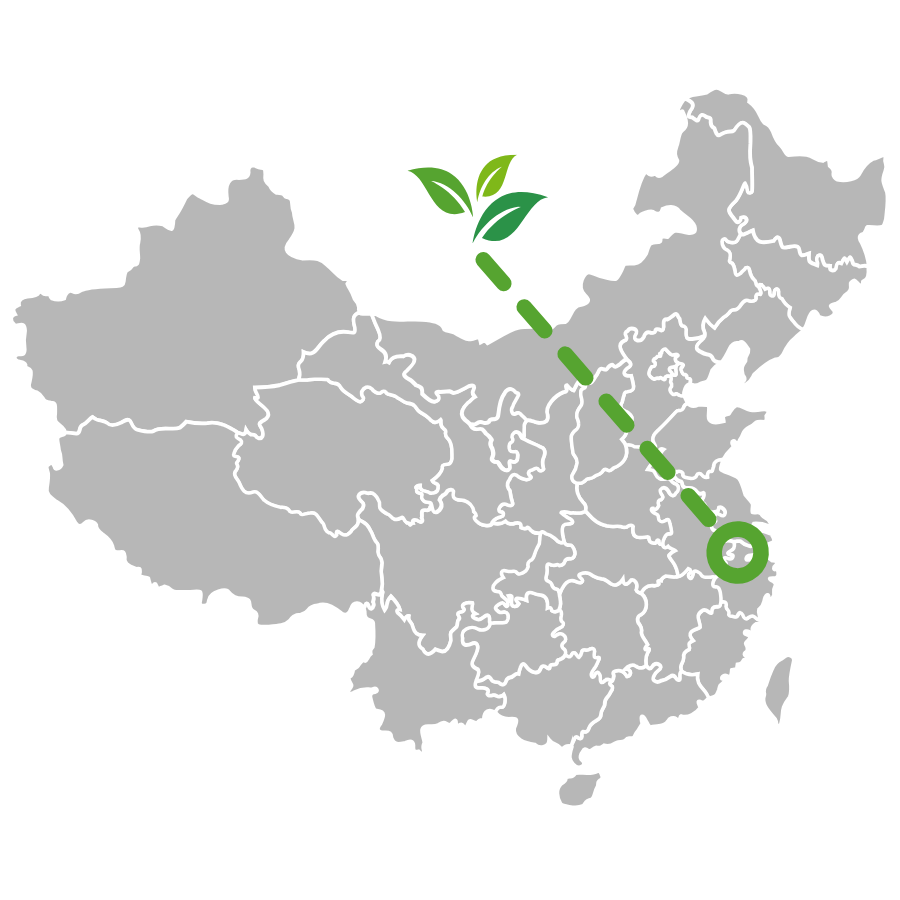
Geography
Anji County is characterized by its expansive bamboo forests, which cover over 60% of its landscape, earning it the title of “Hometown of Bamboo” in China. The region’s unique karst topography, with its limestone peaks and clear, mineral-rich streams, shapes both its natural beauty and ecological diversity.
It's a gentle and smooth, not harsh like some other green teas. There definitely something different about it.
I steeped this for too long the first time and it tunred out bitter. Then I followed the instructions on the packet, which made it taste much better.





